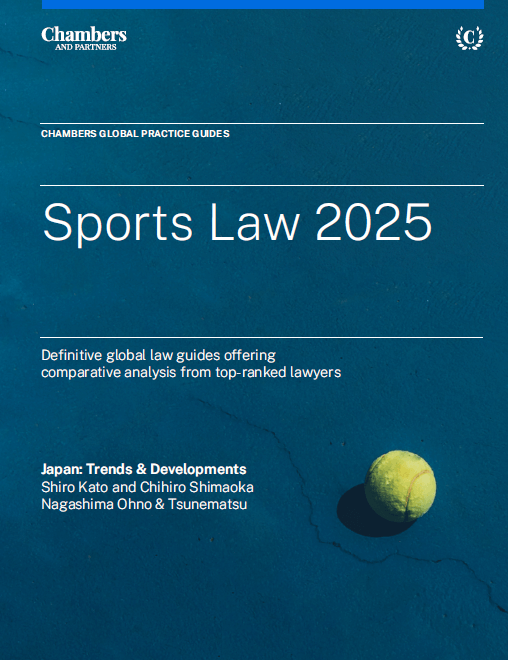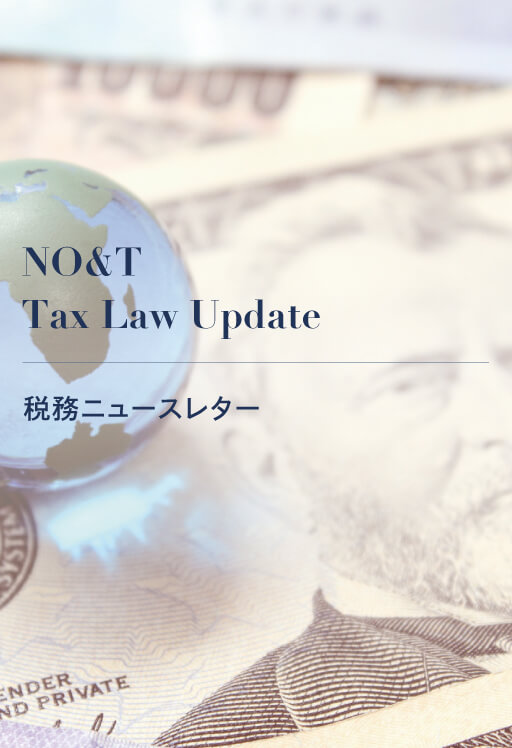
NO&T Asia Legal Review
Thailand has long been a magnet for foreign film producers. In 2024, the Thai film industry generated over THB 6.5 billion (approximately USD 194 million) from foreign film productions, according to the data published by the Thailand Film Office. Despite this growth, the country’s current regulation, namely the Film and Video Act of 2008 (the “FVA”), which governs film production and screening in Thailand as well as film censorship and permit issuance, may be regarded as insufficient to address the complexities of contemporary media distribution, including digital streaming platforms. To address these gaps and support continued industry growth, Thailand’s Ministry of Culture and Thailand Creative Culture Agency (THACCA) has proposed a revision of the existing legislation through a new draft Film Act (the “Draft Act”).
The production and screening of films in Thailand are currently regulated by the FVA. The FVA not only governs films but also regulates media in the form of “video”, such as video games and karaoke, etc. Additionally, it imposes licensing requirements on certain business establishments such as cinemas and video rental shops. The followings are the noteworthy provisions under the FVA for foreign film producers:
Under the FVA, any person wishing to produce a foreign film in Thailand must submit the screenplay and a summary of the plot to the Thai Film Office under the Department of Tourism (the “TFO”) and obtain a filming permit from the National Film and Video Committee (“Filming Permit”). Once a Filming Permit is granted, foreign films producers must ensure that the films must be produced in accordance with the approved screenplay and plot, and that they do not affect the security and dignity of Thailand. The producers are prohibited from making any films contrary to public order or good morals.
The definition of “foreign films” is further clarified in the Notification of the Film and Video Committee re: Criteria, Method and Conditions for Applying for and Granting Approval for Foreign Film Production in Thailand of 2009 issued under the FVA. In summary, a film will be considered as “foreign film” if: (i) it is either entirely or predominantly in a foreign language in the original screenplay for cinematic performance, or (ii) its copyright holder is not of Thai nationality. Therefore, as the nationality of the copyright holder also determines whether a film is considered foreign, film production in Thailand by a Thai production crew but funded or commissioned by foreign producers may fall within scope of “foreign films” and, thus, require a Filming Permit.
Foreign film producers are also required to hire a “local coordinator”, a company or individual registered with the TFO. The local coordinator is responsible for submitting the Filming Permit application on behalf of foreign producers, handling visas and work permits for the production crew and obtaining permission to access filming locations such as national parks or areas managed by local governments.
All films, whether Thai or foreign, intended for screening in Thailand must undergo content review and classification by the Film and Video Censorship Committee, who also has the authority to order edits or censor films that disturb public peace and morality. Under the FVA, films are classified into seven categories:
It should be noted that “films” under the FVA are defined as “materials that record images or audio-visuals which can be projected as continuously moving images”. Therefore, “films” subject to review and classification under the FVA are limited to those recorded in physical mediums, such as film reels or DVDs. Streaming media and online videos are, therefore, not regulated under the FVA unless they will be later recorded in a physical medium or subject to other applicable laws, such as the Computer Crime Act of 2007, as amended, which prohibits uploading obscene data or data that disturbs national peace onto the internet.
In response to the evolving media landscape and the limitations of the existing regulatory framework under the FVA, on 27 March 2025, the Cabinet of Thailand approved in principle the Draft Act proposed by the Ministry of Culture. The main objective of the Draft Act is to replace the outdated FVA with a more industry-oriented law that fosters creativity and freedom of expression rather than state control. The Draft Act also aims to reduce obstacles for foreign film producers and enhance competitiveness with local producers. Key provisions in the Draft Act include:
One of the notable amendments under the Draft Act is the removal of regulations concerning video games from the film legislation framework which will be enacted as separate legislation. In addition, the Draft Act also introduces a new definition of “films” to reflect contemporary and future modes of content distribution. The term “films” is defined as “continuous images, whether accompanied by sound, which are projected or presented for others to view and are not news reporting or events”. By this definition, “films” are no longer confined to physical media as per the FVA. Consequently, content disseminated through streaming platforms may fall within the regulatory scope of the Draft Act.
The Draft Act will establish the National Film Industry Promotion Committee (the “Film Promotion Committee”) to propose policies and plans for promoting the film industry to the Cabinet, as well as monitor the implementation of these policies. Unlike the National Film and Video Committee under the FVA, the Film Promotion Committee under the Draft Act will no longer include representatives from national security authorities such as the military or Royal Thai Police. Instead, it will comprise more representatives from the private sector and specialists in the fields of mass media or marketing.
The Federation of Film Industries of Thailand (the “Thai Film Federation”) will be a new organisation established under the Draft Act. The Thai Film Federation will consist of members from the film and entertainment industries, including both corporate entities and individual professionals. The Thai Film Federation is intended to serve as a representation body for the members by expressing opinions on film-related policies to government agencies and promoting the development and enhancement of the quality of the film industry in Thailand.
A significant departure from the current regulatory regime under the FVA is the abolition of the state-controlled censorship mechanisms and the introduction of a self-regulated rating system. Notably, under the Draft Act, the Film and Video Censorship Committee will be abolished. In conjunction, the existing classification category of “films banned from distribution in Thailand” under the FVA will also be removed. Under the new regulation, all films intended for release or distribution in Thailand must be rated for content suitability based on the age group of viewers. This rating process will be carried out by a private self-regulating body which must be duly registered with the relevant authority under the Draft Act. The specific rating criteria will be stipulated by sub-regulations issued under the Draft Act.
To provide regulatory oversight over the newly established rating framework, the Draft Act will establish the Committee for Monitoring and Supervising the Film Rating System (the “Rating Committee”) to monitor compliance, implement updates or improvements to the rating system. The Rating Committee will also have the authority to suspend the screening of films that are falsely rated by the self-regulating body. Furthermore, rating systems from foreign countries may also be adopted for use in Thailand under the recommendation of the Rating Committee to the Film Promotion Committee.
The Draft Act retains the core requirements under the FVA for foreign film productions and adopts a similar definition of “foreign films”, i.e., films that use a foreign language entirely or predominantly in their original screenplay for cinematic performance, or motion pictures where the copyright holder is not of Thai nationality. Under the Draft Act, foreign film producers are still required to submit the screenplay and plot summary for review and must obtain a Filming Permit from the TFO, through an engagement of a local coordinator. Additionally, foreign film producers are prohibited from making films that undermine or contradict public order or good morals in Thailand.
The Draft Act also proposes to streamline the regulatory process for businesses operating in the film industry. Specifically, under the Draft Act, any person who wishes to engage in the film distribution business (e.g., video rental shops, etc.) or operate a cinema will be required to notify the registrar and operate its business in accordance with the standard as will be announced in by ministerial regulation. This shifts the regulation of business establishments from a “licensing basis” under the current FVA to a “notification basis”.
The Draft Act marks a significant step towards modernising Thailand’s regulatory framework for film production and distribution by abolishing outdated censorship mechanisms, introducing a self-regulated rating system, and restructuring key committees. For foreign filmmakers, the familiar requirements, such as obtaining Filming Permits and hiring a local coordinator, remain, but is expected to be administered under a more streamlined structure as will be further governed by sub-regulation. More notably, the Draft Act expands its scope to address modern forms of content distribution. Streaming media, which previously fell outside the regulatory reach of the FVA, may now be covered under the new definition of “films” and therefore may be required to comply with local regulations once the Draft Act is effective. Industry stakeholders, especially those operating digital platforms, should monitor the final form of the legislation closely and prepare for a new regulatory environment in the years ahead.
This newsletter is given as general information for reference purposes only and therefore does not constitute our firm’s legal advice. Any opinion stated in this newsletter is a personal view of the author(s) and not our firm’s official view. For any specific matter or legal issue, please do not rely on this newsletter but make sure to consult a legal adviser. We would be delighted to answer your questions, if any.


Nopparak Yangiam, Parot Promkam (Co-author)


Yothin Intaraprasong, Yosuke Konno (Co-author)


(April 2025)
Keiji Tonomura, Akira Komatsu (Co-author)


(April 2025)
Shiro Kato, Chihiro Shimaoka (Co-author)


Nopparak Yangiam, Parot Promkam (Co-author)


(August 2025)
Keiji Tonomura, Yoshiteru Matsuzaki (Co-author)


(April 2025)
Keiji Tonomura, Akira Komatsu (Co-author)


(October 2024)
Keiji Tonomura, Minh Thi Cao Koike (Co-author)


Nopparak Yangiam, Parot Promkam (Co-author)


(April 2025)
Shiro Kato, Chihiro Shimaoka (Co-author)


Tsutomu Endo


(November 2024)
Masayuki Fukuda


Supasit Boonsanong, Thananya Pholchaniko, Phareeya Yongpanich (Co-author)


Patricia O. Ko


Claire Chong, Nozomi Kato (Co-author)


Yuan Yao Lee


Supasit Boonsanong, Thananya Pholchaniko, Phareeya Yongpanich (Co-author)


Patricia O. Ko


Claire Chong, Nozomi Kato (Co-author)


Yuan Yao Lee


Supasit Boonsanong, Thananya Pholchaniko, Phareeya Yongpanich (Co-author)


Nopparak Yangiam, Parot Promkam (Co-author)


Shunsuke Minowa, Poonyisa Sornchangwat (Co-author)


Shohei Sasaki, Shunsuke Minowa, Poonyisa Sornchangwat, Kwanchanok Jantakram (Co-author)